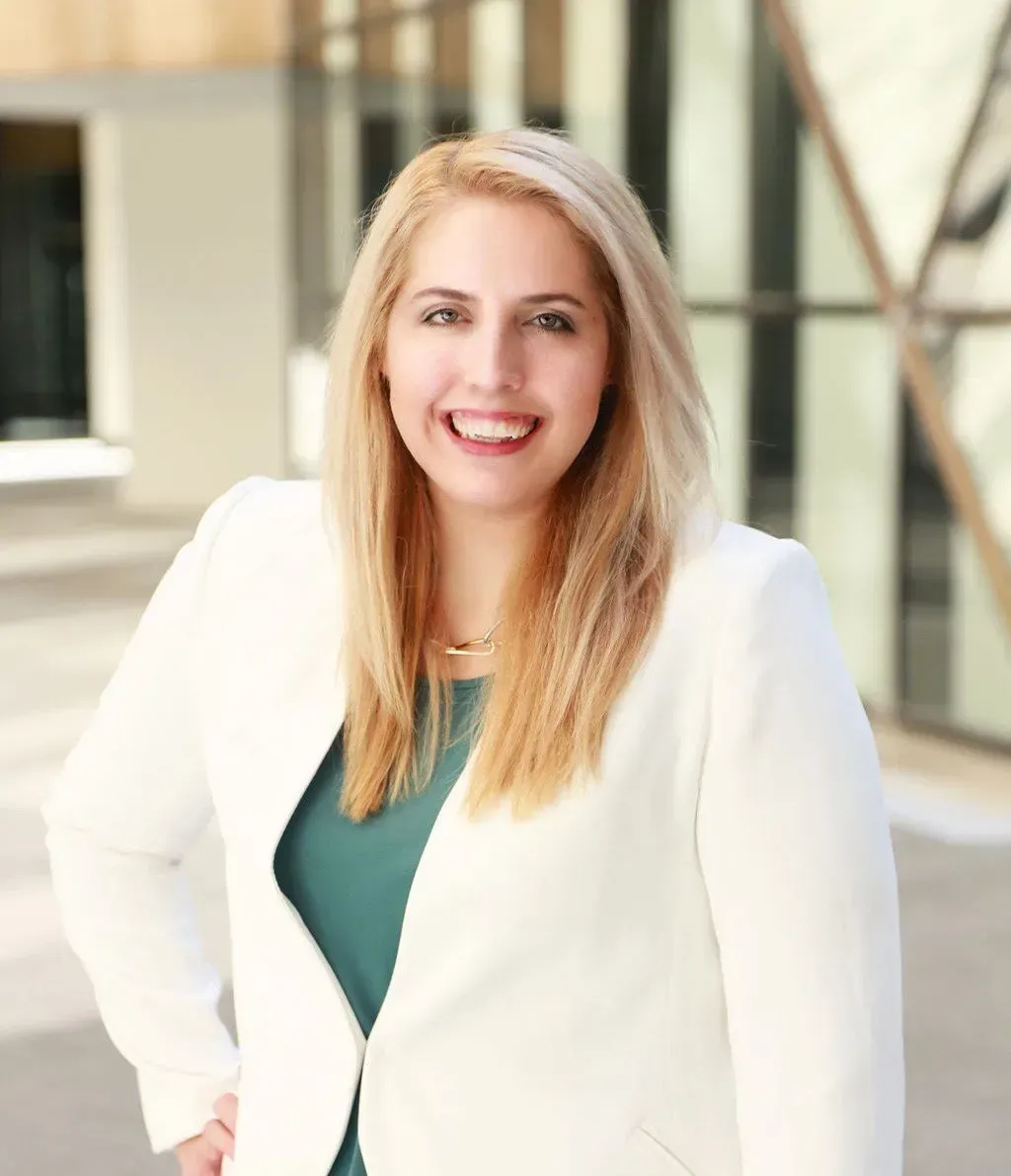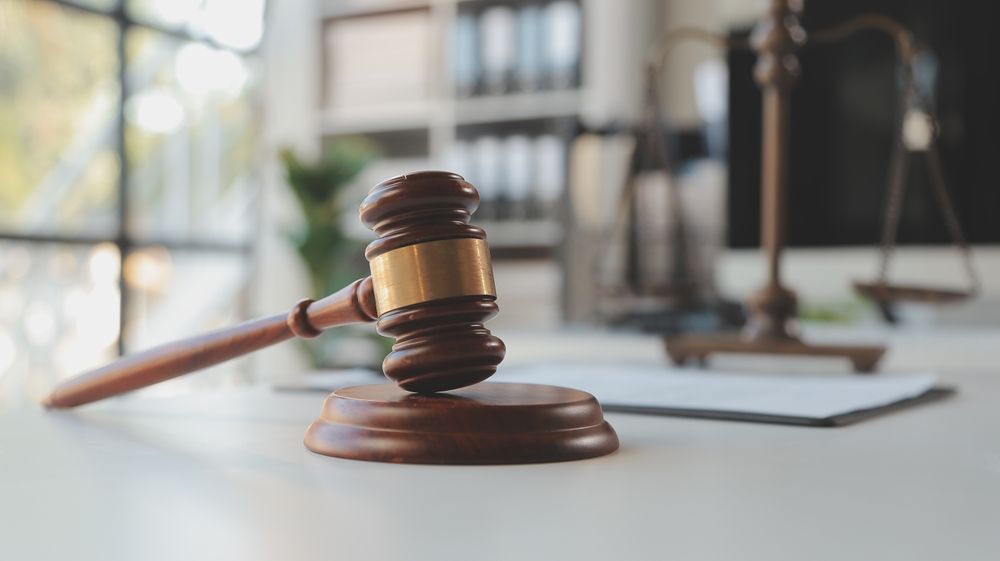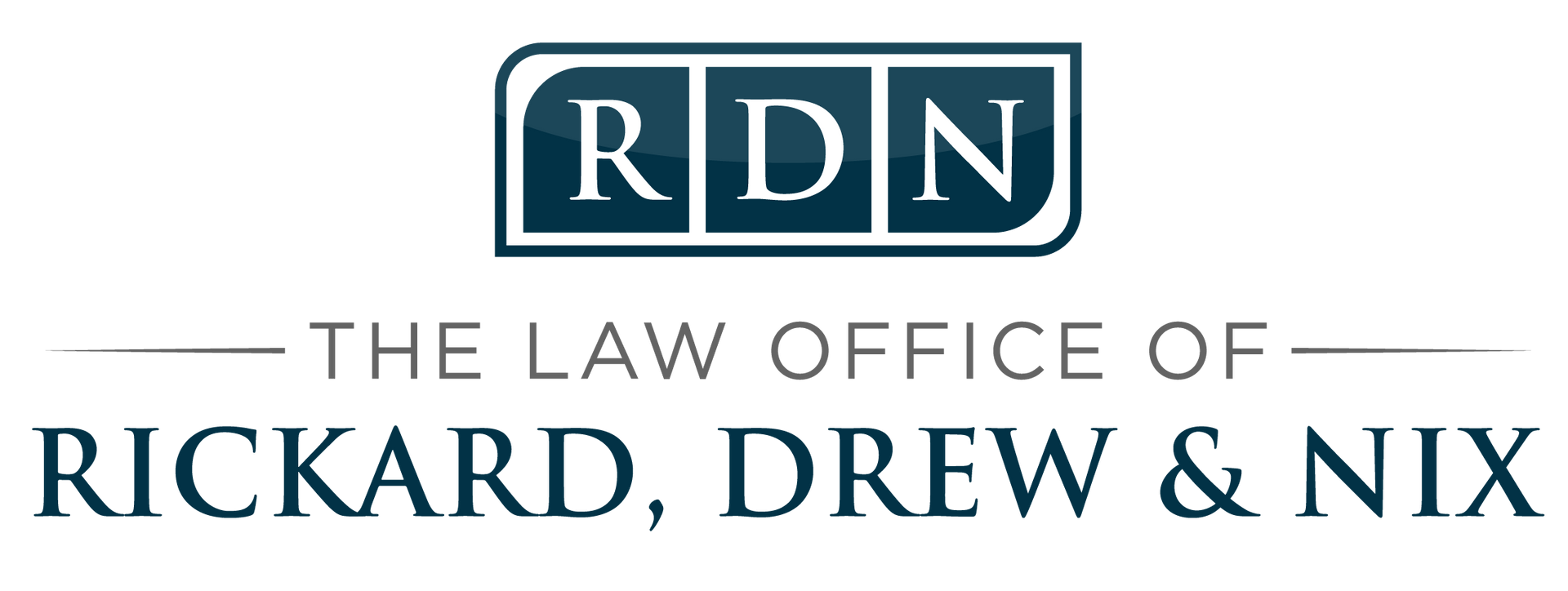Navigating the Atlanta Court System for Truck Accident Cases
Accidents involving trucks can be some of the most complicated. Sometimes, the weather can be a factor; other times, multiple crash victims make your case seem like a snarled mess. How the process works to unravel the mess and reveal the relevant facts is a job for a skilled attorney. But once you understand the legal process in Georgia, you'll be able to form a strategy for recovery.
Truck accidents often create confusion, especially when navigating the complex court system in Atlanta. Understanding the procedures and laws related to your truck accident case can significantly impact your chances of a favorable verdict. This article will cover the essentials of filing a lawsuit, the pre-trial process, and how to prepare for trial in Atlanta. By engaging with this content, readers will gain clarity on the evaluation of their case and know how policies regarding driving under the influence can affect their situation. Ultimately, this guide aims to provide valuable insights to help readers efficiently navigate the legal process following a truck accident.
Understanding the Atlanta Court System for Truck Accident Cases
The Atlanta court system has a distinct structure that impacts truck accident cases. Understanding the jurisdiction in these cases is crucial, as it determines where claims can be filed. This section will discuss the differences between state and federal courts, highlighting how each affects the handling of accidents involving trucks. Additionally, it will provide insights on selecting the right venue for pursuing compensation for pain, property damage, and other losses under comparative negligence rules.
Overview of Atlanta's Court Structure
Atlanta's court system consists of both state and federal courts, each playing a critical role in handling legal matters related to Georgia truck accidents. In state courts, individuals can pursue claims for injuries sustained in truck accidents, such as those affecting the neck or back, which often require extensive medical treatment and physical therapy. On the other hand, federal courts may get involved when trucking companies cross state lines or violate federal regulations, thus establishing a need for a different legal approach.
Understanding which court to approach is essential for those affected by truck accidents in Atlanta. The specific details surrounding the accident, including the parties involved and the nature of the claims, will guide whether the case is filed in state or federal court. This knowledge helps victims secure the compensation they need for medical expenses, lost wages, and the emotional toll experienced after confronting such incidents.
Jurisdiction in Truck Accident Cases
Jurisdiction in truck accident cases is determined by various factors, including the location of the accident and the parties involved. If a collision occurs at a traffic light, establishing liability may rely on examining the traffic signals and the actions of the drivers. Understanding who is responsible is vital for filing a wrongful death claim or seeking compensation for injuries, as this can influence the type of liability insurance coverage available to the involved parties.
Victims of truck accidents should also seek legal advice promptly to navigate the complexities of the court system. This process often involves whether to pursue a settlement through negotiation or if litigation is necessary. With the nuances of Georgia's laws affecting traffic incidents, having an attorney familiar with local regulations can significantly enhance the likelihood of achieving a fair resolution.
Differences Between State and Federal Courts
State and federal courts differ significantly in their roles when handling truck accident cases. State courts generally address personal injury claims arising from incidents that occur within their jurisdiction, such as on Interstate 285. These courts manage cases involving local trucking companies, providing a platform for victims to seek compensation for medical expenses, lost wages, and other related losses. In contrast, federal courts may become involved when the accident involves interstate commerce or violations of federal regulations concerning truck safety, such as brake standards.
The procedural rules and evidence requirements can also vary between the two court systems, impacting how cases progress. For instance, depositions and witness examinations in state courts may differ from those in federal courts, which adhere to stricter evidence protocols. Understanding these differences is crucial for victims navigating their legal options following a truck accident, ensuring they select the appropriate venue for their claims effectively.
Selecting the Right Venue for Your Case
Selecting the right venue for a truck accident case involves careful consideration of various factors. For instance, if a victim was injured due to distracted driving, understanding whether to file in state or federal court can significantly affect the outcome. The venue influences the legal strategies employed and can impact potential fees, so victims need to ensure they direct their attention to the specifics of their situation when deciding where to bring their claim.
Victims should also consider how best to transport their case through the legal system. The anguish caused by an accident can complicate the legal process, making it crucial to choose a court that aligns with the details of the incident, such as the accident location and the parties involved. By engaging with legal counsel who understands these nuances, individuals may navigate the court system more effectively and improve their chances of securing fair compensation.
Filing a Truck Accident Lawsuit in Atlanta
Filing a truck accident lawsuit in Atlanta involves several critical steps. First, initiating the complaint process requires understanding how to draft and submit the necessary legal documents. Next, serving these legal documents to defendants is essential for ensuring they are aware of the claims against them. Victims must also be prepared to respond to defenses and counterclaims, particularly in cases involving chronic pain or amputation. Finally, adhering to Georgia law's importance of timely filing is crucial, as delays can impact the chances of securing fair compensation in commercial truck accidents.
Initiating the Complaint Process
Initiating the complaint process for a truck accident lawsuit in Atlanta requires careful preparation and understanding. First, victims should collaborate with a knowledgeable lawyer to draft a compelling complaint that outlines the details of the accident, including circumstances that led to injuries, such as burns from truck-related collisions. It is also essential to include specific claims regarding damages, as this establishes the groundwork for any potential truck accident settlement.
After drafting the complaint, the next step involves filing the necessary legal documents with the appropriate court. Timing is critical, as victims must adhere to Georgia's statute of limitations, which dictates the period within which they can file a lawsuit. Failure to meet this deadline can jeopardize the opportunity for compensation, making it vital for those affected by accidents involving box trucks or other commercial vehicles to act promptly and seek legal guidance.
Serving Legal Documents to Defendants
Serving legal documents to defendants is a crucial step in filing a truck accident lawsuit in metro Atlanta. This process ensures that the parties involved in the lane collision are formally notified of the claims against them. Engaging a qualified attorney can enhance this procedure, as they understand the specific requirements and best practices for serving documents efficiently, increasing the likelihood of compliance from the defendants.
The percentage of success in a truck accident case can hinge on the proper service of legal documents. Failing to serve these documents correctly may delay proceedings, impacting the victim’s ability to recover from their injury. An experienced advocate can provide invaluable support throughout this process, ensuring that all legal requirements are met and that victims receive the attention they deserve.
Responding to Defenses and Counterclaims
Responding to defenses and counterclaims in a truck accident lawsuit requires a strategic approach. When a truck driver or their legal team presents a defense, such as alleging that the accident was not the driver's fault, the plaintiff must be prepared with strong testimony and evidence. This can include documentation of the accident, eyewitness accounts, and expert testimonies that highlight the driver's negligence and how it directly caused the injury or disability of the victim.
Furthermore, the law concerning truck accidents often allows for complexities like comparative negligence, where both parties may share some fault. Victims need to effectively counter these defenses to protect their claims. Having a knowledgeable attorney can be invaluable; they can help navigate these challenges and articulate a compelling response that emphasizes the plaintiff's injuries and the emotional and financial impacts of the accident.
Importance of Timely Filing Under Georgia Law
Timely filing of a truck accident lawsuit under Georgia law is essential for victims suffering significant injuries, such as spinal cord injury, as it ensures that their legal rights are protected. Georgia's statute of limitations typically allows two years from the date of the accident to file a claim. Delays in initiating this process can result in the loss of the right to seek compensation for not only medical expenses, including potential surgery, but also for punitive damages in cases involving serious misconduct, like drunk driving.
Understanding the importance of promptly filing a lawsuit can significantly impact the outcome for victims who have endured the physical and emotional toll of an accident. Engaging with an experienced attorney as soon as possible enhances the chances of gathering crucial evidence and addressing the necessary legal steps. Victims can present a stronger case for damages, addressing their suffering and the need for future medical care related to their injuries, ensuring they have the opportunity to secure rightful compensation.
Navigating Pre-Trial Procedures in Atlanta
Navigating pre-trial procedures in Atlanta is crucial for victims of truck accidents seeking compensation for pain and suffering. This section will cover essential topics, including the discovery process for gathering evidence and the role of witness testimonies. Additionally, it will explain depositions and interrogatories, the filing and arguing of pre-trial motions, and exploring mediation and settlement options to alleviate stress throughout the legal journey.
The Discovery Process and Gathering Evidence
The discovery process is a critical phase in truck accident cases, allowing the plaintiff to gather evidence that supports their claims. During this time, the plaintiff might work with a claims adjuster to understand the full extent of their injuries, which can include serious conditions like paralysis. Gathering documentation, such as medical records and accident reports, can be essential in establishing the liability of the truck driver and other involved parties, ultimately influencing the courtroom proceedings.
Effective evidence gathering can make or break a case, especially if there is a failure to present adequate proof of damages. The ability to demonstrate the impact of the accident on the plaintiff's life, including lost wages and ongoing medical needs, is crucial. This process not only involves collecting materials related to the accident but also includes witness testimonies, which can significantly bolster the case when presented in front of a judge or jury.
Depositions and Interrogatories Explained
Depositions are formal sessions where witnesses provide sworn testimony outside of court, playing a vital role in truck accident cases. During these sessions, attorneys from both sides can ask questions to gather information about the accident, including details about the vehicle's operation and the insurance policy involved. Understanding how to effectively conduct a deposition can significantly impact a case, especially when addressing the complexities that arise in serious injuries such as spinal cord damage.
Interrogatories complement depositions by allowing one party to send written questions to the other party, requiring a legally binding response. This process helps clarify facts surrounding the accident, including any hazards that may have contributed to the incident. Properly addressing interrogatories can provide essential insights and evidence necessary for building a strong case, thus enabling plaintiffs to present a more compelling narrative if the case goes to appeal in court.
Filing and Arguing Pre-Trial Motions
Filing and arguing pre-trial motions in truck accident cases are crucial steps that can significantly influence the outcome of the trial. These motions may address various issues, such as the admissibility of evidence or requests for summary judgment. For example, a motion might be filed to exclude certain evidence that does not directly relate to the accident that happened at the intersection, thereby streamlining the case and focusing on the key factors that led to the collision.
Moreover, these pre-trial motions often lay the groundwork for negotiation opportunities before entering the courtroom. If a party can successfully argue that the evidence is insufficient to proceed, it might lead to a settlement discussion, potentially saving time and medication costs linked to ongoing treatment for injuries. Understanding how to navigate this process can enhance the chances of fair compensation for victims and clarify the legal complexities involved in their case:
Exploring Mediation and Settlement Options
Exploring mediation as an option for resolving a truck accident claim can reduce the risk associated with a lengthy jury trial. Mediation allows both parties to negotiate a settlement with the assistance of a neutral third party, which can lead to a resolution without the added stress of litigation. This process is particularly beneficial for victims who need compensation for ongoing therapy expenses or lost wages, as it provides a more efficient pathway to securing funds quickly.
Victims should also consider how settling can impact their case regarding negligence claims. If both parties agree to a settlement during mediation, they may avoid the uncertainties of trial, where outcomes can vary significantly. Engaging in mediation offers a critical opportunity for victims to discuss their needs and reach an agreement that addresses their physical and emotional recovery, maximizing their chances of a successful resolution:
Preparing for Trial in the Atlanta Court System
Preparing for trial in the Atlanta court system entails several critical steps that directly impact the outcome of truck accident cases. This section discusses setting a trial date and navigating court schedules, understanding the jury selection process in Georgia, presenting key evidence and witness testimonies, and adhering to courtroom protocols and etiquette. Each aspect plays a vital role in ensuring a structured and effective trial for cases involving commercial vehicles, property damage, and premises liability, all while emphasizing the importance of skilled attorneys throughout the process.
Setting a Trial Date and Court Scheduling
Setting a trial date in the Atlanta court system for truck accident cases requires coordination with court scheduling and consideration of various factors. Courts often have busy calendars, and delays may arise due to the complexities involved in cases, particularly those involving a pedestrian or a catastrophic injury. Legal liability issues related to fatigue among truck drivers can also complicate the scheduling process, as they may necessitate additional time for gathering evidence and witness testimonies.
Once a trial date is established, the attorneys must prepare meticulously to ensure all necessary documentation is in order. This includes presenting key evidence related to incidents like jackknifing, which can dramatically affect the case's outcome. Understanding the timelines involved in scheduling helps plaintiffs feel reassured as their case moves forward, ensuring they can present their claims effectively while seeking justice for their injuries:
Jury Selection Process in Georgia
The jury selection process in Georgia for truck accident cases is a critical component of the trial preparation. During this process, attorneys aim to identify jurors who can impartially evaluate the facts surrounding the accident claims and determine fault. A skilled attorney understands the importance of questioning potential jurors to uncover any biases that may affect their decisions, ensuring a fair opportunity for clients to present their case.
Presenting Evidence and Witness Testimonies
Presenting evidence and witness testimonies in a truck accident lawsuit is essential for establishing the facts of the case. A well-documented demand letter can outline the injuries and losses, including medical expenses and emotional distress caused by the accident. Clear and compelling witness testimonies, combined with safety reports and expert opinions, can significantly strengthen the case before the judge, highlighting negligence and liability.
The presentation of medical records and expert testimony plays a crucial role in supporting claims of physical injuries and psychological impacts from the truck accident. It is important to articulate the connection between the accident and the injuries sustained, ensuring the narrative is cohesive and persuasive. Effective use of evidence can lead to a favorable outcome, reinforcing the need for skilled legal representation throughout the trial process:
Understanding Courtroom Protocols and Etiquette
Understanding courtroom protocols and etiquette is crucial for those involved in truck accident lawsuits in Atlanta. Parties must arrive on time, dress appropriately, and maintain a respectful demeanor throughout the proceedings. This professionalism not only reflects the seriousness of the traffic incident but also influences how judges and jurors perceive the case's merit, impacting the overall outcome.
Effective presentation of evidence, including witness statements, plays a significant role in the courtroom. Attorneys should be prepared to clearly articulate how the evidence supports claims tied to violations of the Federal Motor Carrier Safety Administration regulations, enhancing the case's reliability. By adhering to courtroom protocols, litigants increase their chances of securing favorable results in their truck accident lawsuit.
Understanding Georgia Laws Affecting Truck Accident Cases
Understanding the laws that govern trucking accidents in Georgia is essential for navigating the court system effectively. This section covers key topics: the comparative negligence rules that dictate how damages are assigned, the statute of limitations for personal injury claims, state regulations specific to commercial trucks, and the impact of insurance laws on claims related to accidents that occur on highways. These insights will equip victims with the necessary knowledge to pursue compensation for their injuries and losses successfully.
Comparative Negligence Rules in Georgia
In Georgia, the comparative negligence rules play a crucial role in determining how compensation is assigned in truck accident cases. Under these rules, if a victim is found to share any degree of fault for the accident, their awarded damages will be reduced proportionally. For instance, if a truck accident victim is deemed 20% at fault, their compensation for injuries sustained may be reduced by that same percentage, making it essential for victims to clearly establish the truck driver's liability in their claims.
Victims of truck accidents often face complex situations involving multiple parties and varying degrees of fault, which can complicate recovery efforts. Understanding comparative negligence allows victims to better navigate their cases and work with legal counsel to present a strong argument for compensation. By gathering evidence that demonstrates the truck driver's negligence—such as violations of traffic laws or insufficient attention to road conditions—victims can significantly improve their chances of achieving a favorable outcome in their pursuit of damages.
Statute of Limitations for Personal Injury Claims
The statute of limitations for personal injury claims in Georgia is a critical factor for individuals involved in truck accident cases. Typically, this timeframe allows victims two years from the date of the accident to file a lawsuit. Failing to submit a claim within this period can lead to the loss of the right to seek compensation for their injuries, overwhelming medical bills, and emotional distress resulting from the accident.
This statute underscores the importance of swift action following a truck accident. Victims should prioritize consulting with an experienced attorney who can guide them through the necessary legal processes and ensure all paperwork is filed on time. Understanding this timeframe enables individuals to take appropriate steps to secure the compensation they deserve, addressing not only immediate financial concerns but also potential long-term impacts from their injuries.
State Regulations Specific to Commercial Trucks
In Georgia, commercial truck regulations are specifically designed to enhance safety and accountability within the trucking industry. These regulations include requirements for trucks to be regularly inspected and maintained, ensuring they meet safety standards. Truck drivers must also carry proper licenses and endorsements, as well as adhere to federal hours-of-service guidelines, which help prevent accidents caused by driver fatigue.
Additionally, trucking companies operating in Georgia must maintain liability insurance that meets state minimum requirements. This insurance is crucial in covering damages related to truck accidents, providing protections for victims seeking compensation. Understanding these state regulations equips accident victims with the knowledge necessary to pursue their claims effectively, ensuring they address all relevant factors related to commercial trucks and their operation:
Impact of Insurance Laws on Your Case
The impact of insurance laws on truck accident cases in Georgia is significant, as these laws dictate the minimum coverage requirements for trucking companies. Victims need to understand that the liability insurance held by truck drivers or their employers may limit the compensation they can receive following an accident. For instance, if a trucking company only meets the state’s minimum insurance requirements, victims may find that their claim is insufficient to cover all damages, including medical expenses and lost wages.
Additionally, navigating the intricacies of insurance claims can be challenging for accident victims. Insurance companies may attempt to minimize payouts or dispute claims, leading to potential delays in receiving compensation. It is essential for victims to engage with a qualified attorney who can effectively advocate on their behalf and ensure that they receive the full benefits from the liable party’s insurance coverage. Understanding these dynamics can empower victims to approach their claims more strategically:
Working With an Atlanta Truck Accident Attorney
Selecting the right legal representation is vital in navigating the Atlanta court system for truck accident cases. An experienced attorney helps guide clients through the complexities of the court process, clarifying legal fees and payment structures. Additionally, local legal expertise can significantly enhance a victim's chances of securing fair compensation for their injuries and losses.
Selecting the Right Legal Representation
Selecting the right legal representation is crucial for victims of truck accidents navigating the Atlanta court system. An experienced Atlanta truck accident attorney can provide valuable insight into local laws and court procedures, ensuring that clients are well-prepared for the complexities of their cases. By understanding specific regulations that apply to commercial trucks, victims can better articulate their claims and improve their chances of receiving fair compensation for their injuries.
In addition to knowledge of the legal landscape, an effective attorney brings practical experience in negotiating with insurance companies and other parties involved in truck accident cases. This advocacy is vital, as victims often face challenges when dealing with insurers who may seek to minimize payouts. Working with an attorney who has a proven track record in handling similar cases can empower victims to pursue their claims confidently and work toward achieving a favorable outcome.
How an Attorney Guides You Through the Court System
An experienced Atlanta truck accident attorney plays a vital role in guiding clients through the complexities of the court system. They understand the specific laws and procedures relevant to truck accident cases in Georgia, which enables them to tailor their approach to each individual situation. By providing clear explanations of the legal process, attorneys help victims feel more informed and empowered to make decisions regarding their cases.
Additionally, attorneys leverage their expertise to navigate challenges such as filing deadlines, insurance negotiations, and the intricacies of gathering evidence. This support includes preparing necessary documents and managing communications with opposing parties, which significantly alleviates the stress victims may face following a truck accident. Having a dedicated advocate can ensure that clients pursue their claims effectively, optimizing their chances of obtaining fair compensation for their injuries and losses:
Legal Fees and Payment Structures
Understanding the legal fees and payment structures associated with hiring an Atlanta truck accident attorney is essential for victims seeking compensation. Most attorneys work on a contingency fee basis, meaning they only receive payment if the victim secures a settlement or wins the case. This approach alleviates the financial burden on clients, allowing them to focus on their recovery while ensuring that their legal representation is motivated to achieve the best possible outcome.
Potential clients should also inquire about any additional costs that may arise during the legal process, such as court fees or expenses related to gathering evidence. Clear communication about fees upfront can help avoid misunderstandings later. By discussing these payment structures, victims can make informed decisions and align their expectations with the realities of pursuing a truck accident claim in Atlanta's court system.
The Benefits of Local Legal Expertise
Local legal expertise is invaluable when navigating the complexities of the Atlanta court system for truck accident cases. Attorneys who practice in the area possess an in-depth understanding of state laws, regulations, and court procedures that can directly influence the outcome of a case. This familiarity allows them to develop tailored strategies for each client's unique situation, improving the chances for a successful resolution.
Moreover, these attorneys have established relationships with local judges, court personnel, and other legal professionals, which can facilitate smoother interactions throughout the legal process. This network enables them to anticipate challenges and effectively negotiate settlements, particularly with insurance companies known for their complicated tactics. With a local expert, victims of truck accidents can receive not only legal representation but also the assurance that their case is being handled by someone who truly understands the intricacies of the Atlanta court system.

Attorney Jessica Nix, Managing Partner
Jessica Nix is Managing Partner and a Personal Injury Attorney at the Law Office of Rickard, Drew & Nix in Atlanta, with more than 10 years of experience representing injury victims in courts across Metro Atlanta. She graduated cum laude from the University of Georgia School of Law, where she served as an editor of the Journal of Intellectual Property Law. Jessica is admitted to the State Bar of Georgia, is a member of the Georgia Trial Lawyers Association, and was named a Georgia Super Lawyers Rising Star for Personal Injury from 2017 to 2019. To speak with the Law Office of Rickard, Drew & Nix, schedule a free consultation today.



